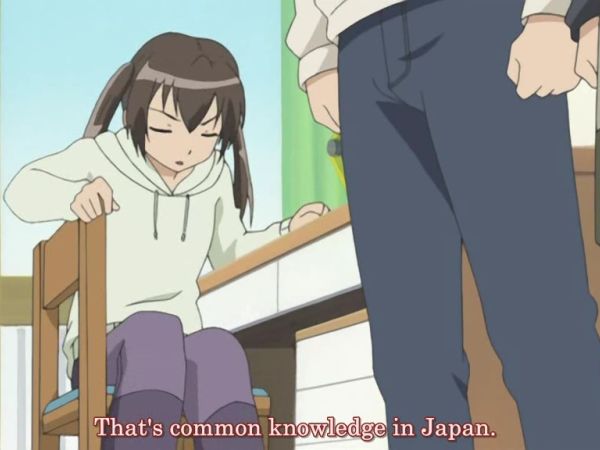Saturday 20 September 2008

|
Pic of the day: This is common knowledge in Japan, but that doesn't mean I knew it. Or at least not to its full extent. Kanji are not wordsKanji, of course, are the symbols in the logographic script of Japanese, as opposed to the two syllabic scripts, hiragana and katakana. The kana convey syllables, the basic parts of spoken Japanese. Kanji, the new reader would imagine, convey ideas. That is vaguely correct. But they are not exactly words. I knew that. I just did not know how much they are not words. I may have had a vague idea that if you know enough kanji, you can guess what a text says. I am really good at guessing. Amazingly good. That's how I have aquired the vast majority of my English vocabulary, by inferring from context. No, really. Learning English as a foreign language, I learned a few hundred words and basic grammar in primary school, then more grammar and a few thousand words in high school. My grammar has not improved much since then, but my vocabulary has expanded at least tenfold, probably a good deal more. If I could do the same with Japanese, I would only need to "bootstrap" the language and pick up the rest merely by reading it. That, it now turns out, may have been overly optimistic. While there are single-kanji words out there, that's not at all the norm. Double-kanji words however are very common. The otaku among us have probably seen obscure puns based on this in anime. I have held off learning the written form of actual words until I have memorized all the glyphs of which they are composed. But if I thought that was enough, I was sorely mistaken. For combining two kanji may certainly give some broad clue as to the content, but no more, and may horribly misrepresent their pronunciation. Just today I found that kyoudai (sibling) is spelled "ani otouto" (older brother younger brother). That may not be quite a typical example (I only have found a few words I can spell yet) but even if the pronunciation is not completely unrelated, it is still not possible to know in most cases. Each word typically has two types of "reading" or pronunciation: On-reading (based on the original Chinese word) and kun-reading (based on the corresponding Japanese word). It is a bit like English, where the Germanic "sheep" becomes French-inspired "mutton" when slaughtered. If we were to represent the symbol for sheep with a curly little symbol, we would not be able to know whether it was the Germanic or the French pronunciation unless we already knew English. In Japanese this is not only the case for almost every word. No, they also imported kanji from China on more than one occasion, sometimes from different parts of China, so they have different pronunciations there. And the Japanese words often have a couple different pronunciations too. For instance the same glyph may represent a noun and a verb, but these are often completely different. In short, even if I learn the 1945 officially recommended kanji, I will still not be able to read out loud, nor will I be able to understand more than the gist of the text - and that "gist" will often as not be ridiculously wrong. I shall still have to learn each individual word even when it consists of two or more kanji. ***On the bright side, I may not need to learn more than those 1945 kanji ever. Well, perhaps some of the extras that are used in names, but it is more or less mandatory to give the pronunciation when a name is introduced, because the reading of names from kanji is even more obscure than normal prose. So learning those will be on a need-to-know basis, and there probably won't be much need. The compilation of nearly 50 000 kanji turns out to contain all known Japanese AND Chinese signs, most of which have never been recorded in Japanese writing. And all modern writing uses either only the 1945 recommended kanji, or adds the spelling in smaller hiragana over or beside extra kanji (in which case most of them find it more convenient to drop the kanji and just print the hiragana). I am not sure if that is an improvement for me, since knowing the pronunciation will not help me know the meaning. But it probably still beats memorizing tens of thousands of kanji... I look at pages upon pages of very complex glyphs, and on the tiny corner of the first page that I have entered into my learning system so far. It seems daunting, it seems nearly impossible - and yet I feel strangely confident. If I live long enough, I will learn them. And if not, missing some of the kanji is probably not the thing I shall regret on my way to the afterlife. Unless Buddhism was right after all, and I shall be reborn as a Japanese in order to fulfill my obligation to learn them all... But even that would not really be a fate worse than death, I think. Although a disturbing number of Japanese teenagers and even some children seem to think differently: Suicide after failure in school is far more common than in any western society. I promise, that won't happen to me. And anyway, I can't imagine why anyone would voluntarily depart from a life filled with rice balls, pocky and robot catgirls. Why not just wait till the sushi gets you? But I don't eat sushi. There are limits! I just take one kanji three times a day, not necessarily with meals. |
Yesterday <-- This month --> Tomorrow?